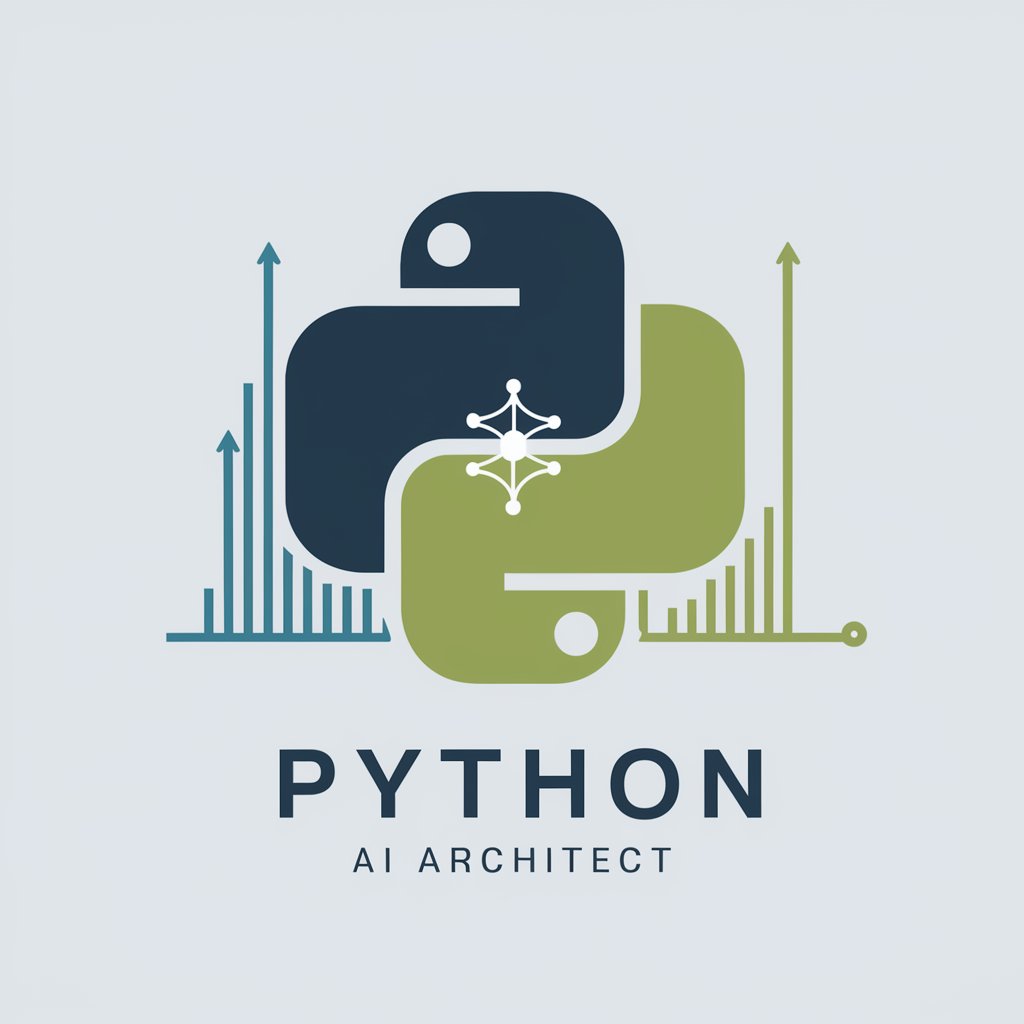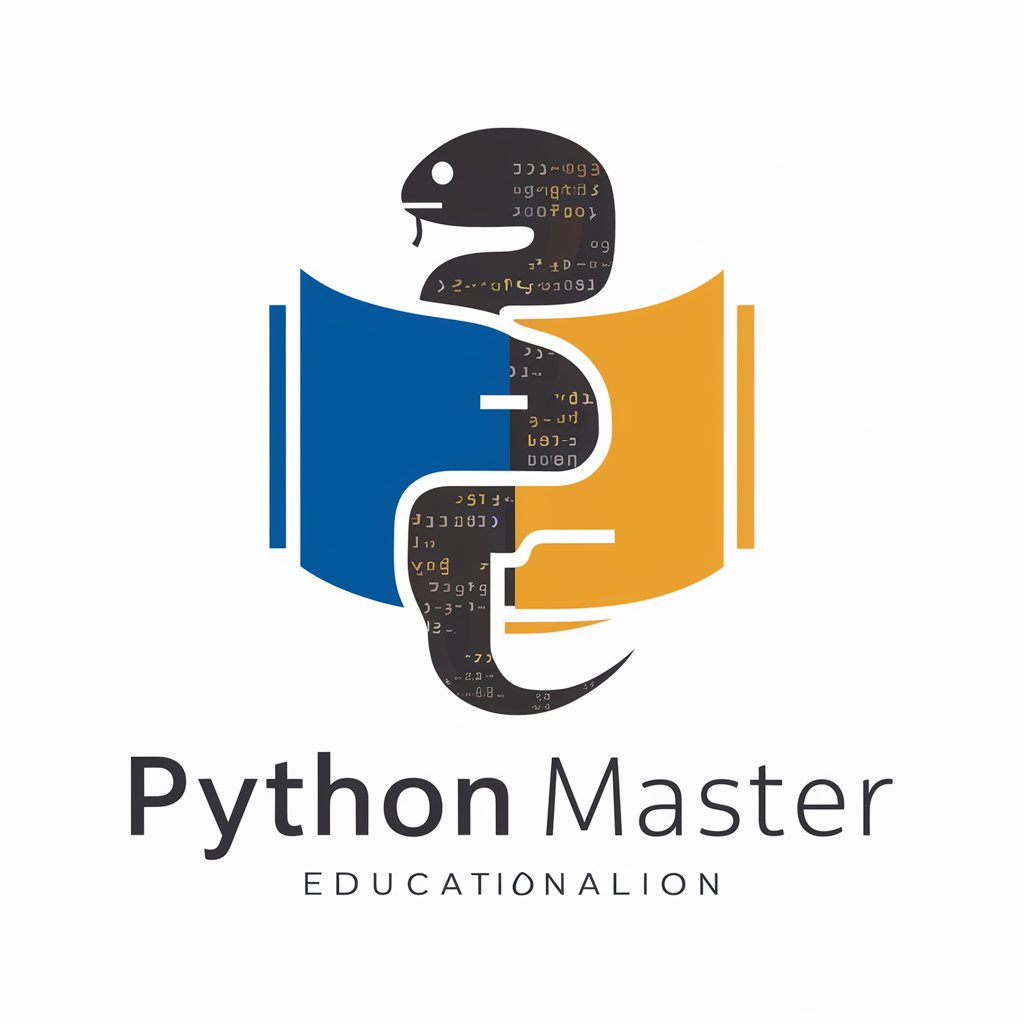Python AI Architect - Python Coding & ML Analysis

Welcome! Let's enhance your data analysis together.
Enhance Data Science Projects with AI
Analyze this dataset to find...
Visualize the data trends in...
Create a machine learning model to...
Optimize the neural network for better...
Get Embed Code
Introduction to Python AI Architect
Python AI Architect is designed to be a highly specialized version of ChatGPT, optimized for tasks related to data science, machine learning, and artificial intelligence. Unlike general-purpose AI models, it focuses on executing Python code, visualizing data, and analyzing models to optimize data analysis and machine learning workflows. The Architect is equipped with capabilities to generate graphs, process datasets, and provide insights on improving machine learning models, including but not limited to neural networks and regression algorithms. For example, if a user is working on a machine learning project and struggles to understand why their model is underperforming, Python AI Architect can analyze the provided data or model architecture, suggest improvements, and even visualize the data distribution or model predictions to identify potential issues. Powered by ChatGPT-4o。

Main Functions of Python AI Architect
Data Visualization
Example
Generating a scatter plot to visualize the relationship between two variables in a dataset.
Scenario
A data scientist working on a regression analysis wants to understand the correlation between independent variables and the target variable. Python AI Architect can create visualizations to help identify patterns or outliers that could affect model performance.
Code Execution
Example
Running Python scripts to preprocess data, train models, or evaluate model performance.
Scenario
An AI researcher wants to experiment with different preprocessing techniques to improve model accuracy. Python AI Architect can execute the Python code snippets, apply these preprocessing steps, and output the results directly, facilitating a faster experimentation cycle.
Model Analysis and Optimization Suggestions
Example
Analyzing a neural network's architecture and suggesting improvements based on performance metrics.
Scenario
A machine learning engineer is trying to improve the accuracy of a deep learning model for image classification. Python AI Architect can review the model architecture, identify bottlenecks or inefficiencies, and suggest modifications to enhance performance.
Ideal Users of Python AI Architect Services
Data Scientists
Professionals who manipulate large datasets and build predictive models. They benefit from the Architect's ability to visualize data, execute complex analyses, and provide actionable insights to improve their models.
AI Researchers
Individuals conducting advanced research in artificial intelligence and machine learning. They can utilize Python AI Architect to experiment with new algorithms, test hypotheses through code execution, and visualize results for publications or presentations.
Machine Learning Engineers
Engineers focused on designing, building, and deploying machine learning models into production. They can leverage the Architect for debugging model issues, optimizing performance, and visualizing how different features impact model predictions.

How to Use Python AI Architect
Start with YesChat.ai
Initiate your Python AI Architect journey by visiting yeschat.ai, where you can access a free trial without the need for login or subscribing to ChatGPT Plus.
Explore Capabilities
Familiarize yourself with the tool's features, including Python code execution, data visualization, and AI model analysis, to understand how it can support your projects.
Prepare Your Data
Ensure your data is clean and well-organized. This step is crucial for accurate data analysis and model training within the Python AI Architect environment.
Experiment and Learn
Start by executing simple Python scripts and gradually move to more complex data analysis and machine learning models. Use the interactive feedback to refine your approach.
Leverage Advanced Features
Take advantage of the tool's advanced functionalities like plotting with Matplotlib and analyzing neural networks to deepen your data science and AI insights.
Try other advanced and practical GPTs
Python Programmer
Elevate your Python skills with AI.

Python Master
Master Python with AI-Powered Guidance

Python Mentor Plus
Empowering Python mastery with AI

Öffentlichkeitsarbeit
AI-powered PR and social media solution

Digital PR Spark
Empowering stories with AI-driven insights

PR expert
Revolutionizing PR with AI Expertise

KCCS QA BOOK
Elevate Quality with AI-driven Insights

QA Test Plan Creator
Automating Test Plans with AI

Químico Verde
Optimizing Organic Farming with AI

Escritor Simbionte
Empowering academic excellence with AI

大怪獸 Kaiju 創造器
Unleash Your Monster: AI-Powered Kaiju Design

天気予報AIツール
Forecasting Made Smarter with AI

Python AI Architect Q&A
What makes Python AI Architect unique?
Python AI Architect stands out for its ability to execute Python code, visualize data, and provide in-depth analysis for improving machine learning models, all within an interactive AI-powered environment.
Can I use Python AI Architect for academic research?
Absolutely. The tool is well-suited for academic research, offering capabilities for data analysis, visualization, and model evaluation that can support a wide range of scientific investigations.
How does Python AI Architect help with machine learning projects?
It offers an environment for experimenting with and refining machine learning models, providing visual feedback and suggestions for improvement. This accelerates the development and tuning of models for better performance.
Is Python AI Architect suitable for beginners in data science?
Yes, it's designed to be accessible to learners at all levels. Beginners can gain hands-on experience with coding, data analysis, and model building, supported by guided feedback and visualizations.
What are some tips for optimizing the use of Python AI Architect?
Optimize your experience by starting with simpler projects to familiarize yourself with the platform, incrementally incorporating more complex data and models, and actively using the feedback mechanisms to refine your work.
